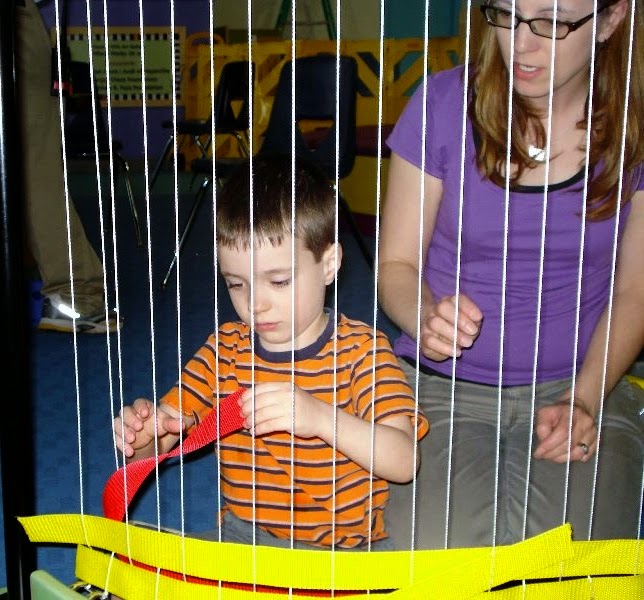Algebra in the early
years establishes the necessary groundwork for ongoing and future mathematics
learning. -Jennifer
Taylor-Cox
In February, the travelling exhibit XOXO will move out of the upper level and Math Connections will move back in! You will certainly find some new features, however; the introduction and exploration of algebra concepts will be back! But what does algebra look like at DuPage Children's Museum?
In the article "Algebra in the Early Years? Yes!" author Jennifer Taylor-Cox describes the central ideas of algebra and illustrates ways they can be applied to young children's activities and experiences. These concepts, "enhance children's natural interest in mathematics and their disposition to use it to make sense of their physical and social worlds."
The central ideas of algebra described in the article are also the core concepts of many exhibits and activities found in DCM's Math Connections neighborhood. Take a look at some of the algebraic connections present in DCM's Math Connections Neighborhood using insight from Taylor-Cox's article.
Central Idea #1: Patterns
"'Recognizing, describing, extending, and
translating patterns'"
In Math Connections, children
can explore symmetry, create patterns with shape and color or create 2-D or 3-D
patterns.
Try this: Encourage children to point to each color or shape as they
"read" patterns throughout the neighborhood. For example: red,
blue, red, blue, red, blue.
Central Idea #2: Mathematical Situations and
Structures
"'Experiences with mathematical situations
and structures through representations and analyses of equality'"
Encourage children to explore representations
and the concept of equality in Math Connections.
Try this: As you explore
the neighborhood, use words like equal/not equal, same/different,
more/less, balanced/unbalanced.
Return next week for central ideas #3 and #4, Algebra at DuPage Children's Museum, Part II.









No comments:
Post a Comment